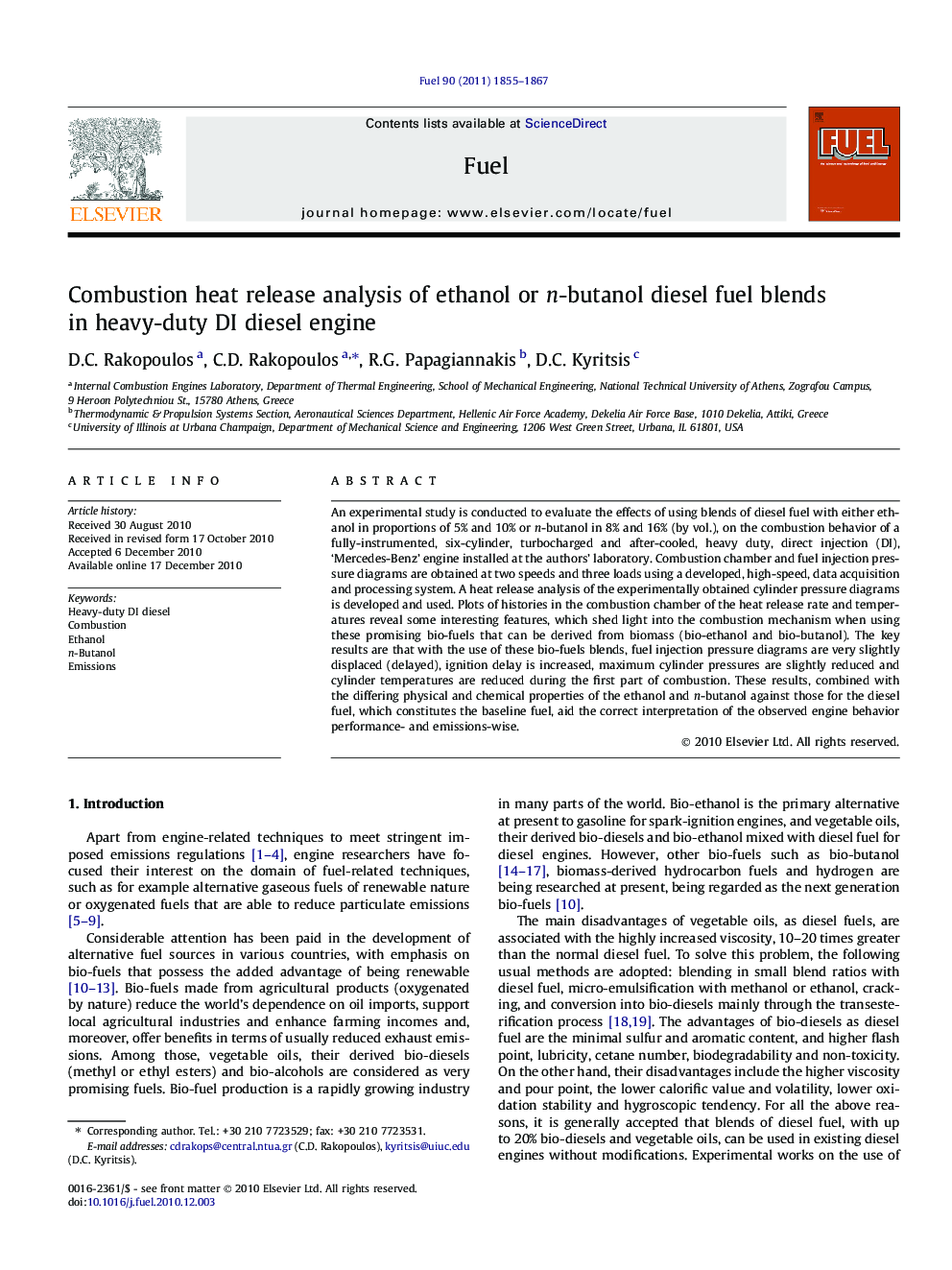| Article ID | Journal | Published Year | Pages | File Type |
|---|---|---|---|---|
| 206758 | Fuel | 2011 | 13 Pages |
An experimental study is conducted to evaluate the effects of using blends of diesel fuel with either ethanol in proportions of 5% and 10% or n-butanol in 8% and 16% (by vol.), on the combustion behavior of a fully-instrumented, six-cylinder, turbocharged and after-cooled, heavy duty, direct injection (DI), ‘Mercedes-Benz’ engine installed at the authors’ laboratory. Combustion chamber and fuel injection pressure diagrams are obtained at two speeds and three loads using a developed, high-speed, data acquisition and processing system. A heat release analysis of the experimentally obtained cylinder pressure diagrams is developed and used. Plots of histories in the combustion chamber of the heat release rate and temperatures reveal some interesting features, which shed light into the combustion mechanism when using these promising bio-fuels that can be derived from biomass (bio-ethanol and bio-butanol). The key results are that with the use of these bio-fuels blends, fuel injection pressure diagrams are very slightly displaced (delayed), ignition delay is increased, maximum cylinder pressures are slightly reduced and cylinder temperatures are reduced during the first part of combustion. These results, combined with the differing physical and chemical properties of the ethanol and n-butanol against those for the diesel fuel, which constitutes the baseline fuel, aid the correct interpretation of the observed engine behavior performance- and emissions-wise.
